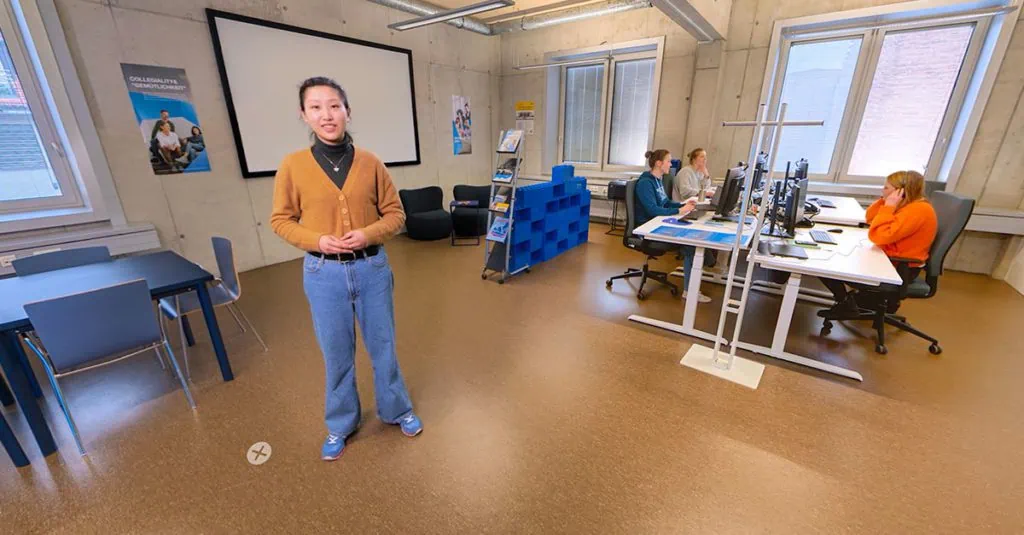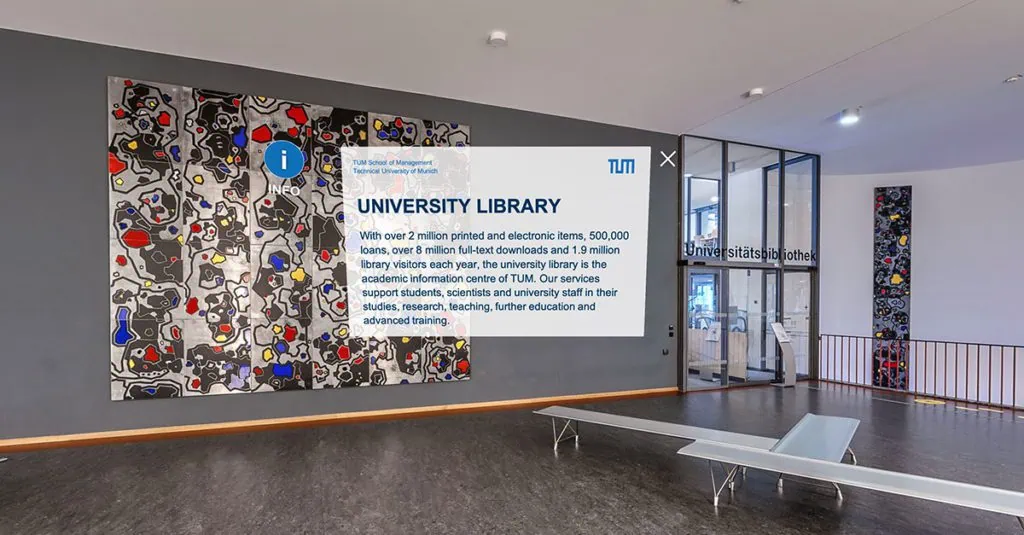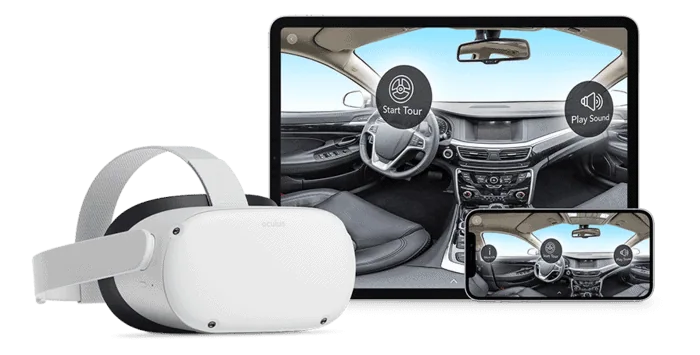How the TUM School of Management in Munich employs its VR strategy to engage and guide new students
The TUM School of Management in Munich is using Virtual Reality to enrich its marketing and student recruitment strategies. They partnered with VRdirect to create three immersive VR projects to engage prospective or existing students and partners. These projects include a campus tour, information about study programs, and an interactive scavenger hunt game.
The advantages of using VR in education marketing are numerous. It offers unique engagement opportunities, tangibility for different student interests, accessibility for global audiences, and reflects innovation in education. The TUM School of Management’s adoption of VR for marketing has yielded impressive results, bridged geographical gaps, and made education and research more accessible in the digital age.
The Department of Marketing at the TUM School of Management in Munich is pursuing an innovative approach by incorporating Virtual Reality to enhance its marketing strategies and streamline student recruitment efforts. Their primary goal was to bridge the gap between their campuses, their academic programs, and a diverse global audience. For this purpose, they received support from VRdirect, and by using the VRdirect Studio software, the business school was not only able to create VR experiences but also to make use of several distribution channels for their audience.

Mastering campus tours, program guides and scavenger hunts
TUM School of Management initiated a classic VR tour, guiding prospective students through the Munich campus. This project included visits to lecture halls, the atrium, the cafeteria, the student hub, and more. The primary objective was to provide international students with an opportunity to explore campus and academic programs remotely while simultaneously offering to experience the tour on VR glasses at events. KPIs showed impressive engagement, with extended view times and high click-through rates, indicating a strong interest in exploring the campus. The 360° tour is available on the official School of Management website.
The next step involved presenting their study programs in VR, providing comprehensive information about bachelor’s and master’s programs, study fees, and the enrollment process. The TUM School of Management’s innovative Program Finder offers an alternative experience for orientation and information management, allowing prospective students to navigate the academic landscape in a highly immersive and interactive way. This virtual tool not only showcases the various programs but also provides a unique perspective, allowing users to explore campus facilities, interact with virtual faculty members, and gain insights into the university environment.
By viewing analytical data of the VR project the TUM School of Management can indicate which programs seem to achieve a preference. The 360° school guide is available on the campus website.
TUM School of Management also introduced an interactive VR game – a scavenger hunt. Participants answered quiz questions to navigate from one room to another. The game achieved high user participation with impressive quiz completion rates and added a fun and engaging element to the student welcome events. The VR quest is available and was presented on-site with VR headsets. It served as one of the featured games during the opening day event.


Multiple advantages to increase engagement
Engagement:
VR provides a unique and immersive way to engage prospective students, allowing them to virtually explore campus, classrooms, and facilities, creating a strong emotional connection.
Personalization:
Universities can tailor VR experiences to showcase specific programs, departments, or campus features, making them relevant to individual student interests.
Accessibility:
VR can transcend geographical barriers, enabling prospective students worldwide to experience the campus and academic environment without physically visiting.
Innovation:
Utilizing VR demonstrates a commitment to cutting-edge technology, appealing to tech-savvy students and reflecting a forward-thinking educational environment.
„We use VR for marketing and recruiting purposes. What’s particularly exciting is that we’re able to update and edit our VR experiences independently. This allows us to make both minor and major changes without the need for additional external resources.“
Frederic Füßmann, Digital Strategist.
Utilization of VR for marketing
Using VR technology in education marketing has proven to be an effective way for universities to distinguish themselves, leave lasting impressions on prospective students, and expand their reach. TUM School of Management’s partnership with VRdirect in adopting VR for marketing and student recruitment has resulted in remarkable outcomes. By providing immersive VR experiences, TUM School of Management has successfully engaged both local and international audiences. The story is an inspiring example of how technology can bridge geographical gaps and make education more accessible in an increasingly digital world.
Further usage at Technical University Munich
If you’re interested in learning more about various applications of VR at TUM, check out the Success Story of TUM School of Engineering and Design. Their innovative use case presents the institutes’ facilities accessible to industry partners and used for research.



